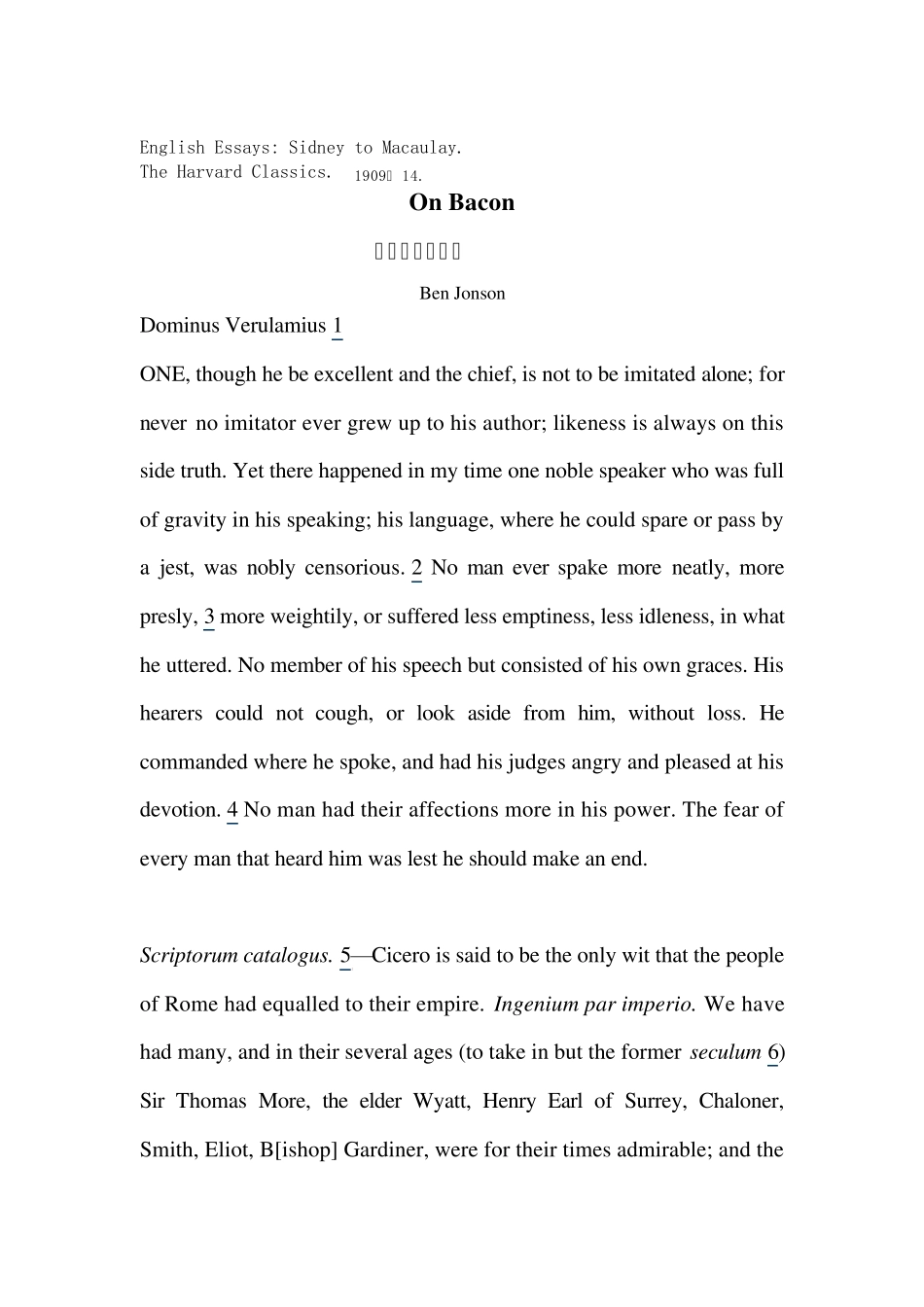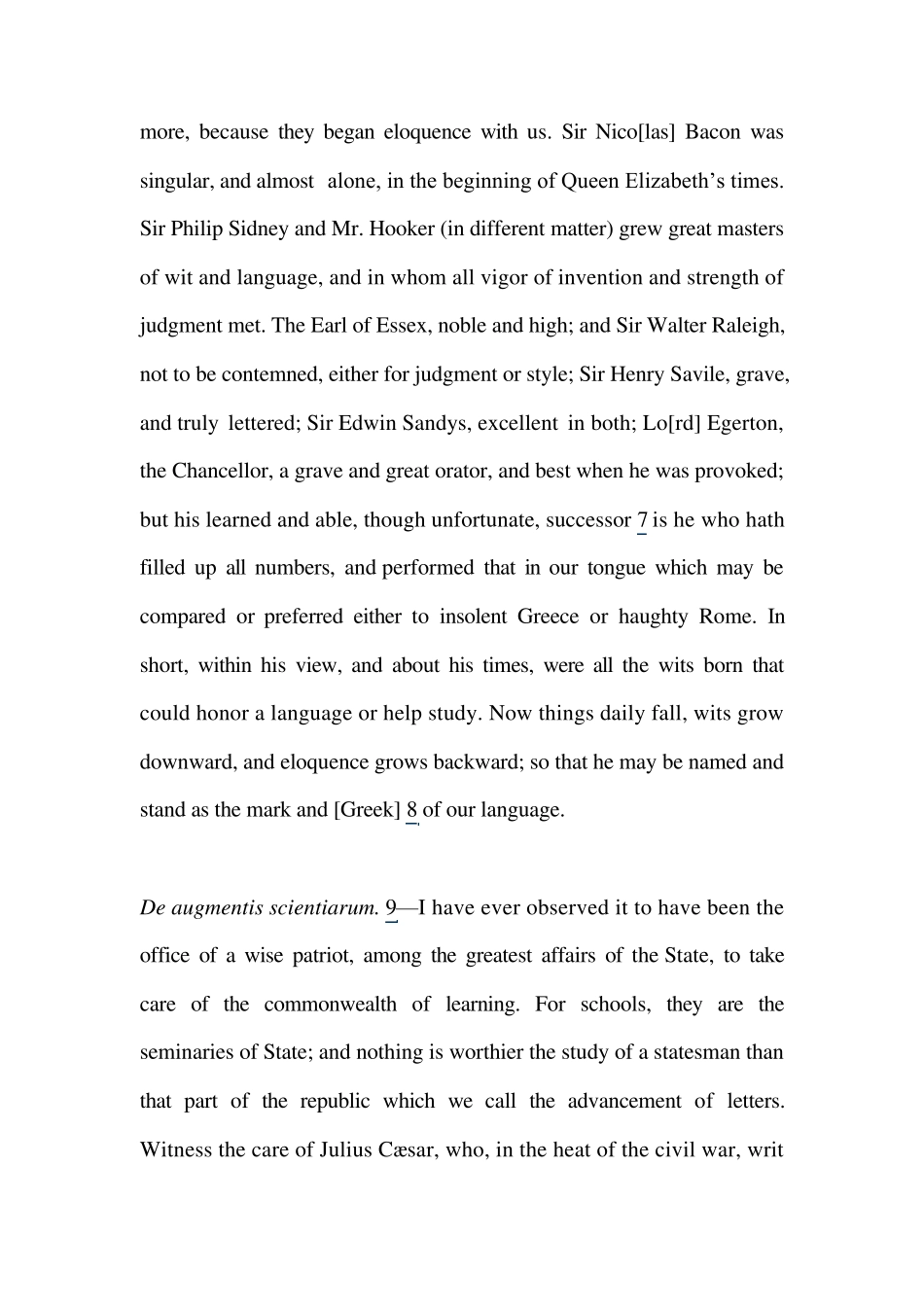English Essays: Sidney to Macaulay. The Harvard Classics. 1909– 14. On Bacon (英译汉原文) Ben Jonson Dominus Verulamius 1 ONE, though he be excellent and the chief, is not to be imitated alone; for never no imitator ever grew up to his author; likeness is always on this side truth. Yet there happened in my time one noble speaker who was full of gravity in his speaking; his language, where he could spare or pass by a jest, was nobly censorious. 2 No man ever spake more neatly, more presly, 3 more weightily, or suffered less emptiness, less idleness, in what he uttered. No member of his speech but consisted of his own graces. His hearers could not cough, or look aside from him, without loss. He commanded where he spoke, and had his judges angry and pleased at his devotion. 4 No man had their affections more in his power. The fear of every man that heard him was lest he should make an end. Scriptoru m catalogu s. 5—Cicero is said to be the only wit that the people of Rome had equalled to their empire. Ingeniu m par imperio. We have had many, and in their several ages (to take in but the former secu lu m 6) Sir Thomas More, the elder Wyatt, Henry Earl of Surrey, Chaloner, Smith, Eliot, B[ishop] Gardiner, were for their times admirable; and the more, because they began eloquence with us. Sir Nico[las] Bacon was singular, and almost alone, in the beginning of Queen Elizabeth’s times. Sir Philip Sidney and Mr. Hooker (in different matter) grew great masters of wit and language, and in whom all vigor of invention and strength of judgment met. The Earl of Essex, noble and high; and Sir Walter Raleigh, not to be contemned, either for judgment or style; Sir Henry Savile,...


